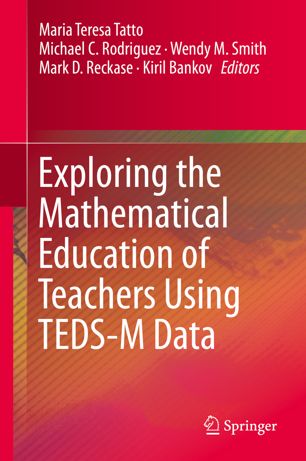

Most ebook files are in PDF format, so you can easily read them using various software such as Foxit Reader or directly on the Google Chrome browser.
Some ebook files are released by publishers in other formats such as .awz, .mobi, .epub, .fb2, etc. You may need to install specific software to read these formats on mobile/PC, such as Calibre.
Please read the tutorial at this link: https://ebookbell.com/faq
We offer FREE conversion to the popular formats you request; however, this may take some time. Therefore, right after payment, please email us, and we will try to provide the service as quickly as possible.
For some exceptional file formats or broken links (if any), please refrain from opening any disputes. Instead, email us first, and we will try to assist within a maximum of 6 hours.
EbookBell Team

4.7
76 reviewsThis book uses the publicly available TEDS-M data to answer such questions as: How does teacher education contribute to the learning outcomes of future teachers? Are there programs that are more successful than others in helping teachers learn to teach mathematics? How does the local and national policy environment contribute to teacher education outcomes? It invites readers to explore these questions across a large number of international settings.
The importance of preparing future mathematics teachers has become a priority across many nations. Across the globe nations have allocated resources and expertise to this endeavour. Yet in spite of the importance accorded to teacher education not much is known about different approaches to preparing knowledgeable teachers and whether these approaches do in fact achieve their purpose. The Mathematics Teacher Education and Development Study (TEDS-M) is the first, and to date the only, cross-national study using scientific and representative samples to provide empirical data on the knowledge that future mathematics teachers of primary and secondary school acquire in their teacher education programs. The study addresses the central importance of teacher knowledge in learning to teach mathematics by examining variation in the nature and influence of teacher education programs within and across countries.The study collected data on teacher education programs structure, curriculum and opportunities to learn, on teacher educators’ characteristics and beliefs, and on future mathematics teachers’ individual characteristics, beliefs, and mathematics and pedagogical knowledge across 17 countries providing a unique opportunity to explore enduring questions in the field.